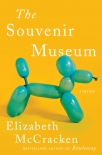An American Tragedy, Theodore Dreiser [best business books of all time txt] 📗

- Author: Theodore Dreiser
Book online «An American Tragedy, Theodore Dreiser [best business books of all time txt] 📗». Author Theodore Dreiser
No, no, better wait a while perhaps—at least until the Court of Appeals had passed on his case. Why jeopardize his case when God already knew what the truth was? Truly, truly he was sorry. He could see how terrible all this was now—how much misery and heartache, apart from the death of Roberta, he had caused. But still—still—was not life sweet? Oh, if he could only get out! Oh, if he could only go away from here—never to see or hear or feel anything more of this terrible terror that now hung over him. The slow coming dark—the slow coming dawn. The long night! The sighs—the groans. The tortures by day and by night until it seemed at times as though he should go mad; and would perhaps except for McMillan, who now appeared devoted to him—so kind, appealing and reassuring, too, at times. He would just like to sit down some day—here or somewhere—and tell him all and get him to say how really guilty, if at all, he thought him to be—and if so guilty to get him to pray for him. At times he felt so sure that his mother’s and the Rev. Duncan McMillan’s prayers would do him so much more good with this God than any prayers of his own would. Somehow he couldn’t pray yet. And at times hearing McMillan pray, softly and melodiously, his voice entering through the bars—or, reading from Galatians, Thessalonians, Corinthians, he felt as though he must tell him everything, and soon.
But the days going by until finally one day six weeks after—and when because of his silence in regard to himself, the Rev. Duncan was beginning to despair of ever affecting him in any way toward his proper contrition and salvation—a letter or note from Sondra. It came through the warden’s office and by the hand of the Rev. Preston Guilford, the Protestant chaplain of the prison, but was not signed. It was, however, on good paper, and because the rule of the prison so requiring had been opened and read. Nevertheless, on account of the nature of the contents which seemed to both the warden and the Rev. Guilford to be more charitable and punitive than otherwise, and because plainly, if not verifiably, it was from that Miss X of repute or notoriety in connection with his trial, it was decided, after due deliberation, that Clyde should be permitted to read it—even that it was best that he should. Perhaps it would prove of value as a lesson. The way of the transgressor. And so it was handed to him at the close of a late fall day—after a long and dreary summer had passed (soon a year since he had entered here). And he taking it. And although it was typewritten with no date nor place on the envelope, which was postmarked New York—yet sensing somehow that it might be from her. And growing decidedly nervous—so much so that his hand trembled slightly. And then reading—over and over and over—during many days thereafter: “Clyde—This is so that you will not think that someone once dear to you has utterly forgotten you. She has suffered much, too. And though she can never understand how you could have done as you did, still, even now, although she is never to see you again, she is not without sorrow and sympathy and wishes you freedom and happiness.”
But no signature—no trace of her own handwriting. She was afraid to sign her name and she was too remote from him in her mood now to let him know where she was. New York! But it might have been sent there from anywhere to mail. And she would not let him know—would never let him know—even though he died here later, as well he might. His last hope—the last trace of his dream vanished. Forever! It was at that moment, as when night at last falls upon the faintest remaining gleam of dusk in the west. A dim, weakening tinge of pink—and then the dark.
He seated himself on his cot. The wretched stripes of his uniform and his gray felt shoes took his eye. A felon. These stripes. These shoes. This cell. This uncertain, threatening prospect so very terrible to contemplate at any time. And then this letter. So this was the end of all that wonderful dream! And for this he had sought so desperately to disengage himself from Roberta—even to the point of deciding to slay her. This! This! He toyed with the letter, then held it quite still. Where was she now? Who in love with, maybe? She had had time to change perhaps. She had only been captivated by him a little, maybe. And then that terrible revelation in connection with him had destroyed forever, no doubt, all sentiment in connection with him. She was free. She had beauty—wealth. Now some other—
He got up and walked to his cell door to still a great pain. Over the way, in that cell the Chinaman had once occupied, was a Negro—Wash Higgins. He had stabbed a waiter in a restaurant, so it was said, who had refused him food and then insulted him. And next to him was a young Jew. He had killed the proprietor of a jewelry store in trying to rob it. But he was very





Comments (0)